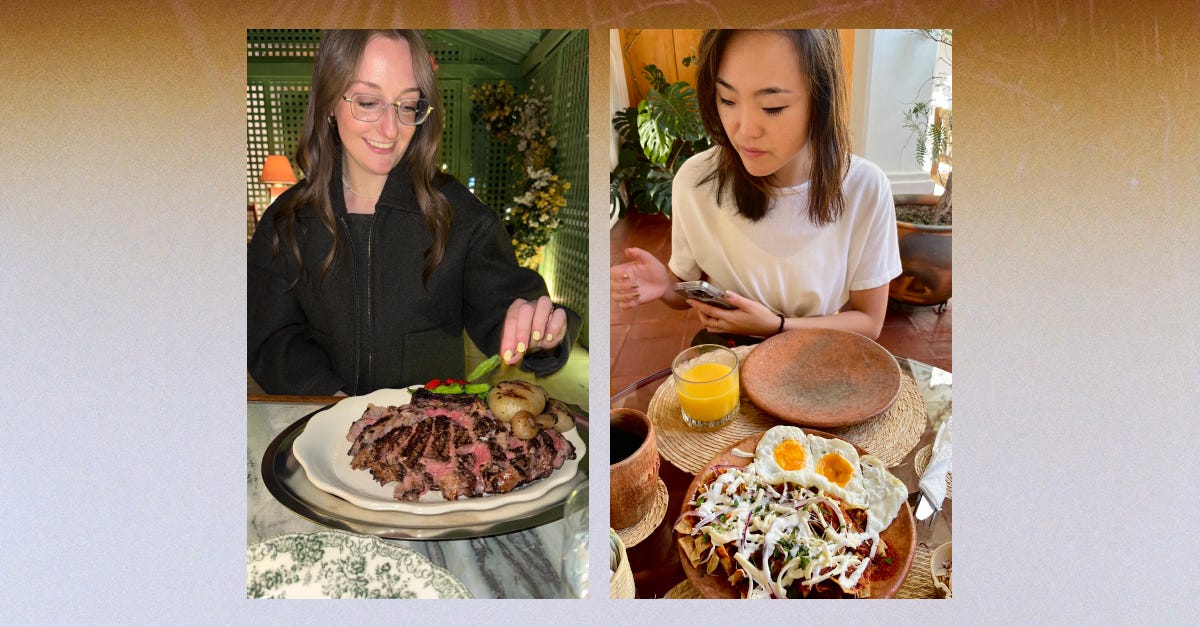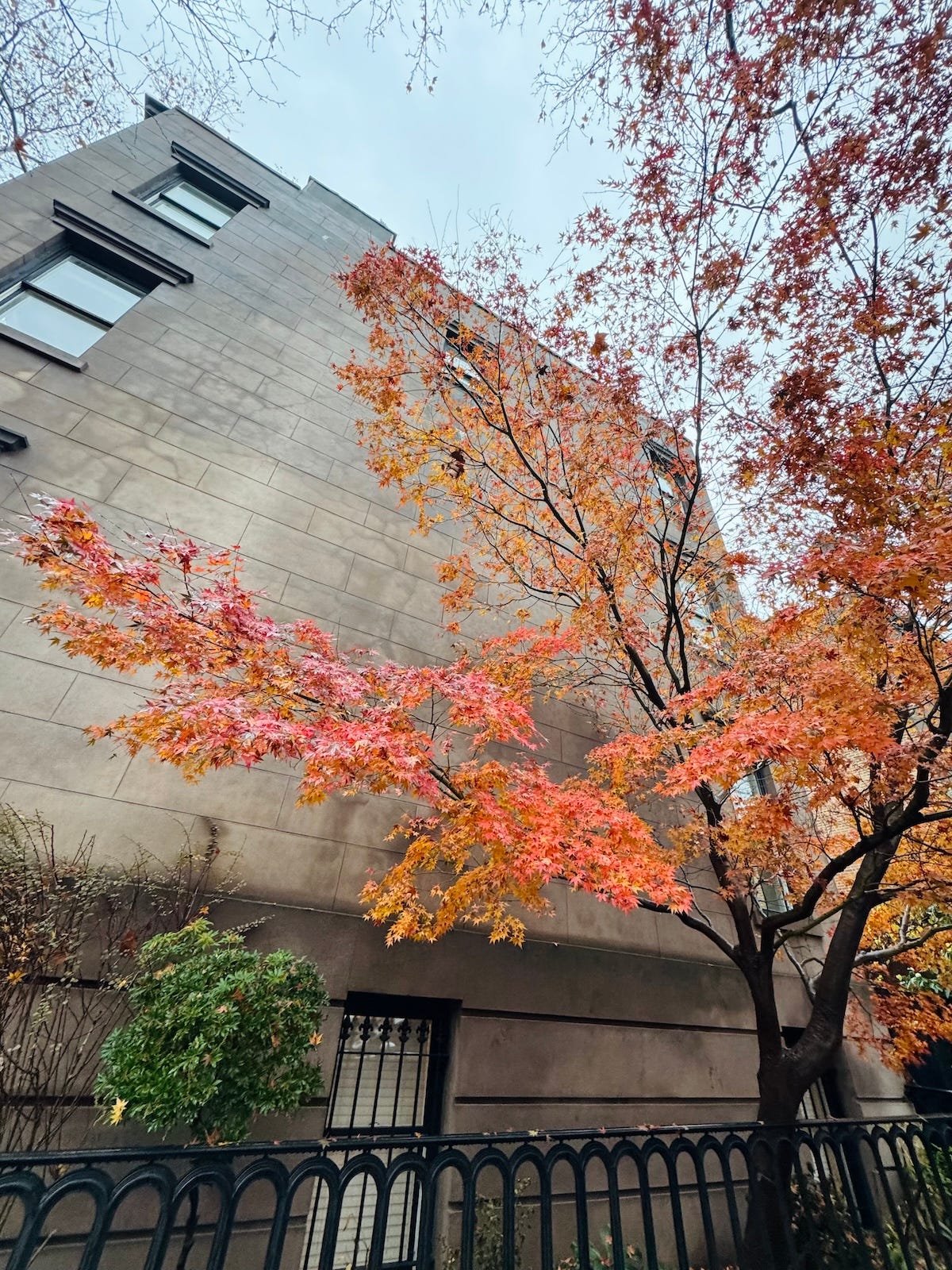Presenting the next chapter of my 2024 Field Notes—
The Soft Skills Beneath the Soft Skills
A pulse check on the state of being a woman at work, or just being a human at work. Keeping jadedness off your lawn. Treating companies like public parks and leaving them more lush than you found them.
In conversation with Nashville-based strategist Anna Wilhelm. <3
Vicky: Starting with this essay in Monocle's Oct 2024 edition where Ukrainian senior corporal Yaryna Chornohuz advocates for female conscription:
"...I have witnessed how much better women can be at dealing with situations that men might shy away from...perhaps because women encounter much more of it in our civilian lives, many are less scared to deal with it.
Women are also often more likely to be open about how they are feeling. We start conversations that men might otherwise avoid. This allows us to deal with stress more effectively. With rates of PTSD in Ukrainian society rising, it is paramount that we are all open about our experiences, both mental and physical. Some qualities that have been traditionally deigned feminine actually serve to complement many aspects of a soldier's experience."
She may be talking about war but I immediately read it as the modern workplace.
If we're able to deal with stressors effectively - what's going on with the lack of female leadership?
Anna: So women would be, as Chloe from the timeless canceled sitcom “don’t trust the B in Apt 23” says, men’s “emotional Sacajawea”?
It could be a thing in the workplace if all women actually wanted to be in the c-suite, but many women I’ve talked to enjoy the work too much to be a truly powerful person. It becomes really frustrating for them — they’re in their 40s, primed for executive leadership, and they want to make more money. But they don’t want to give up the work they enjoy doing, and they don’t want to give up their lives and the time spent with family or friends. So they plateau as a VP.
And it’s conscious — it’s a choice they make — but it is a bummer that it’s the only option. I wish there were more women at C-suite level to have that impact the Ukrainian woman describes, but in the corporate world, to get there sometimes means to sacrifice those feminine/rational/emotional qualities.
Vicky: And yet — even if not at the top, even if an intern or middle management — there is still this implicit role of mothering that women often bring to the table.
It’s like having to practice soft skills beneath the soft skills.
Anna: Soft skills beneath the soft skills FOR REAL.
Vicky: At best, the dynamic isn't mothering, it's co-learning. It's a mutual accountability towards kindness, shared by everyone. But when it gets to “emotional Sacajawea” level it gets complicated. You can't meet goals, much less surpass them or retain the team to get there, when you have a set of people who are burdened with the extra hidden labor of managing emotional volatility.
Anna: For it to work, the burden has to be shared by everybody, not just women.
I don’t know what it means for women to be able to remain fully themselves all the way up the corporate ladder. Decades ago, women didn’t enter the workforce en masse to be “a provider” in the way men were and are conditioned to. They did it because they enjoy the work and the self-sufficiency. Thanks to the different conditioning, our workplace incentives are just very different, culturally speaking, and I don’t think workplaces have caught on.
What would work look like if we could just do our work? OR what would it look like if we were compensated and rewarded for our emotional labor in the workplace? Honestly, I have no idea. But either would be welcome reprieve.
Vicky: Yeah, I'm just tired. And at the same time I don't want to overindex on gender, because you will always meet people on both sides who prove you wrong.
Anna: Always!! For me, being in ad agencies most of my career, the client services element and “the client is always right” rhetoric was strong. I’ve since distanced myself from client management to be a pure knowledge worker as a result. I get to do what I love, without as much outward facing performance.
Vicky: Yeah I feel like client management is much healthier to enter later on in your life rather than earlier. I once had someone tell me (about a dream consultancy I had in college) that it’s a much better place to end up than start out at.
Anna: That’s a great point. Your sense of self and boundaries and general workplace expectations are more fully formed. Thankfully, I had a boss who taught me some of this (e.g. tactful ways to say “no” without saying the word “no”). But saying yes to any client request was also a cultural issue in the industry.
Vicky: But also there are no shortcuts to self respect and so you still have to learn how to be aware and react more quickly to situations that don’t feel right. Like at the beginning when you're confronted with disrespect or harassment at work, it’s not like you quickly conclude, oh, this is just another personally lived example of the collective injustice of misogyny, racism, etc etc, you just get chest pain.
Anna: And that chest pain often comes because you very suddenly remember just how unsafe unconscious sexism or racism can be for you.
Vicky: Yeah honestly I often think of my first boss, who was such a force in the area of “good work but also care for the people.” She was the first person who showed me how to lead with grace.
I was an insecure kid out of college and did a lot of things out of that insecurity. And instead of getting angry or petty, she always knew, she’d pull me aside and say, “Hey what was that? What’s up? Talk to me.”
Anna: I love that! Too many people haven’t been managed by people like her, and haven’t developed their own personal ethos of management. (It’s absolutely not always their fault. But I do wish more people would give themselves the chance to imagine things could be a little different.)
Vicky: I was talking to a friend yesterday about how growing in maturity is retaining your sense of wonder. And it’s really that wonder, that ability to be curious, be hopeful - that prompts actions like speaking up or walking out, which is often incorrectly perceived as more negative than positive.
Anna: Jadedness is a defense mechanism. It tends to work, which is the worst part. But it took me realizing that wonder and awe helped me better assess when I was treated poorly, because I allowed myself to be surprised by it. Someone’s talking down to me at work? How surprising. A man is doing the bare minimum and expecting me to be impressed? How absurd. It’s hard to see those as lackluster or inappropriate unless you’ve spent time beholding anything dazzling and awe inspiring.
Vicky: Literally the work of my year is trying to keep jadedness off my lawn! Make room for the beautiful strong delicate Japanese maple!!! (Which abound in my neighborhood, really great landscaping out here.)
Anna: 🥹 aw i love that



